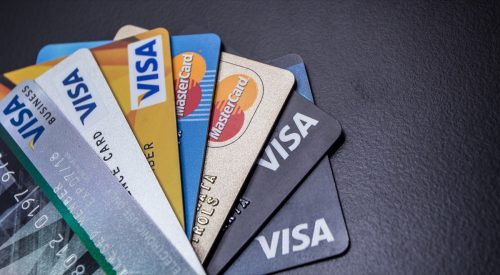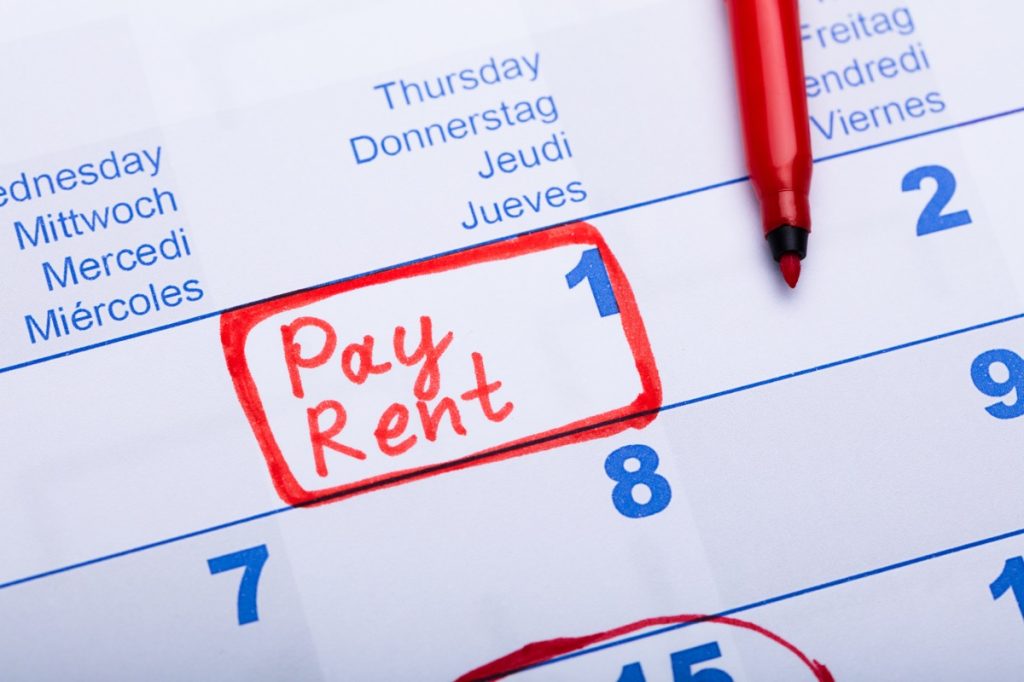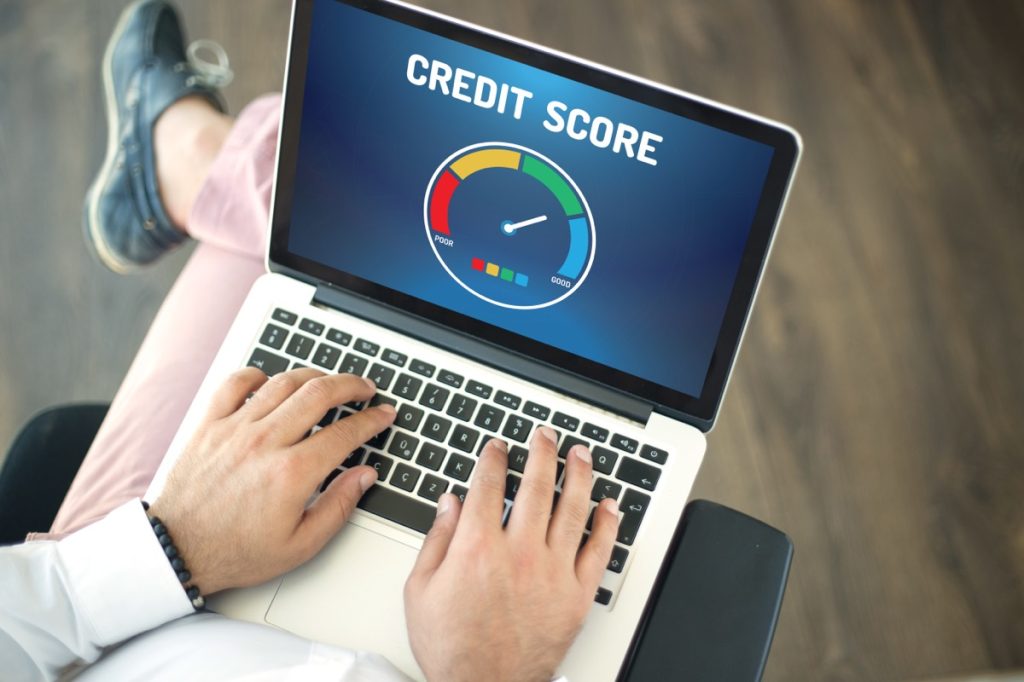9 Surprising Things That Can Boost Your Credit Score, Finance Experts Say

It’s essential to monitor your credit score, but when it comes to improving it, the factors at play can be confusing. The mystery of exactly how credit scores are calculated can become even more frustrating when they drop lower than we’d like. Getting them back under control ultimately comes down to understanding how they got there in the first place.
“It’s important to recognize what goes into the calculation of your credit score as soon as you start your active financial life,” says Alejandra Rojas, founder of The Money Mindset Hub. “In essence, what this score seeks to show is that you are trustworthy, reliable, and know how to use the opportunity to work with your financial institution’s money.”
If your number heads south—or has never been that high to begin with—there’s no need to panic. There are some lesser-known ways you can raise that number. Read on for the most surprising things that can boost your credit score, according to finance experts.
RELATED: Never Use Your Credit Card for These 6 Purchases, According to Financial Experts.
1
Paying attention to credit utilization

Credit utilization, or the amount of credit you’re using divided by the amount you’re allowed, is a crucial piece of the puzzle. The math seems simple enough, but there’s a catch.
“The particular surprise is that this ratio is usually calculated as of your statement date,” explains Ted Rossman, senior industry analyst for Bankrate.com. “So even if you pay in full—which is a great practice to avoid interest—you still might have a high credit utilization ratio, which can drag down your credit score.”
“Fixes could include requesting a higher credit limit and/or making an extra mid-month payment to knock your balance down before the statement even comes out,” Rossman says. “FICO says people with the best credit scores often keep their credit utilization ratio below 10 percent. But whatever it is now, you can improve your credit score by lowering your credit utilization ratio.”
Andy Kalmon, CEO of financial services organization Benny, recommends contacting your credit card issuers and asking to have your limit increased. “Depending on your current status, they may not agree to it, but it doesn’t hurt your score if you ask.”
“When you increase your credit limit but stick to the same spending habits, you effectively improve your credit utilization score,” Kalmon notes. “This significantly impacts your credit score because it reflects how much credit you use in comparison to how much is available to you (and the less you use, the better).”
2
Checking your credit report

Be sure to regularly review your credit report and dispute any errors.
“Online banking tools have made it pretty easy to figure out what your credit score is, but when was the last time you actually looked at your credit report?” asks Jonathan Petts, former bankruptcy lawyer and CEO and co-founder of Upsolve. “Your score is a reflection of what’s reported by lenders and financial institutions to the major credit bureaus. If they report incorrect information, this could hurt your score.”
“Luckily, you can get your credit report for free at least once a year,” Petts says. “You should do this and look at the entries thoroughly. If you spot a mistake, dispute it.”
Julien Brault, CEO of Hardbacon, a Canadian personal finance management mobile app, also recommends this as “one of the easiest low-effort ways to boost your score quickly.”
“Humans make credit reports, and humans make mistakes, so if you request a copy of your report and find a valid inaccuracy, the bureau will recognize this and change it in your favor,” Brault explains.
Petts says you should look for common inaccuracies like closed accounts that are listed as open, accounts you haven’t heard of, and missed payments you know you made on time, among others.
As a note, your credit report contains details about your credit history, which lenders obtain via a “hard inquiry” to determine your risk level as a customer. This report contains more information than you would otherwise get from services like Credit Karma, where you can request “soft inquiries” and view your score without impacting your credit.
RELATED: 8 Best Budgeting Apps in 2024, Finance Experts Say.
3
Becoming an authorized user

No one wants to be a mooch, but in the credit world, it’s not always such a bad thing. Becoming an “authorized user” on someone else’s account—particularly someone who makes their payments on time—can help you build credit quickly.
“If you have a friend or family member with a high credit score, becoming an authorized user on one of their credit cards can help boost your credit score,” says April Eick, RN, financial coach to nurses and healthcare workers at Freebird Financial Coaching.
4
Diversifying your debt

Financial experts also have advice that may seem like the exact opposite of what you should be doing: Taking out more loans.
“It sounds counterintuitive to take on more debt, but there are certain situations when it makes sense,” Brault says. “For example, if you are carrying a large balance on your credit card but are making all the payments, this may impact your score, but you are also still a trustworthy borrower. Don’t shy away from looking into a mortgage loan if you are trying to buy a house, as this may help you increase your score if you continue to make all the payments on time.”
Ann Martin, director of operations for CreditDonkey, agrees, noting that both debt utilization percentage and “debt diversity” go into your credit score calculation.
“Debt utilization refers to the total amount of debt you have as a fraction of your credit limits. Opening a new line of credit, especially if you don’t actually take that much money out of it, can be an excellent way to improve that utilization ratio,” she says. “By the same token, opening a new type of debt will boost your credit score. If you have a credit card, inquire about a personal loan, for example.”
5
Reporting your rent payments

The way you use your money will help dictate how your credit score is calculated. For many, this includes things beyond credit card payments, such as their mortgage. But even if you don’t own a home yet, you can still make sure of the money you’re handing over every month to boost your numbers.
“If you’re trying to increase your credit score to get a mortgage, make sure that your rent payments are accounted for. Services like Rental Kharma or RentTrack can report your on-time rent payments,” says debt expert Scott Nelson. “Anyone renting knows that rent is typically their biggest expense each month, so it can be a significant boost to your credit score to get your rental payments acknowledged. ”
6
Paying your credit card debts right away

Improving your credit score isn’t always just about being prompt on deadlines. Experts point out that sometimes, it can help to pay down charges right away.
“Using more credit can increase credit utilization, so it is important to pay off cards quickly,” explains Mike Sullivan, personal finance consultant for Take Charge America. “Some consumers use the credit card’s app to make an immediate payment in the amount of a purchase just completed. It’s also possible to make immediate payments on many store cards at the store.”
In this case, even you’re using the card, there is no balance increase and no impact on utilization. “Basically, it is using credit for cash transactions just to increase a credit score,” he says.
7
Keeping your old accounts

It can be tempting to close credit cards that you don’t use as much or those that are (literally) collecting dust in the back of your wallet. But Brault advises against this, as these mature credit cards play a bigger role than you may realize.
“Keep all old credit accounts, even if they seem bad. Multiple factors, including the age of your credit, calculate your credit score. Therefore, older credit is actually important for your score, and as long as you keep them open, they will positively impact your score as they age,” Brault explains.
These cards also contribute to that all-important credit utilization, as it just adds to the total credit you’re allotted each month.
RELATED: 7 Benefits of Delaying Retirement, Finance Experts Say.
8
Consolidating your debt

If you’re struggling to get on top of a mountain of debt, the best course of action might not be to scale individual peaks. According to Jeffrey Stouffer, certified financial planner (CFP) and finance expert at JustAnswer, debt consolidation can sometimes do more in the right circumstances.
“Conventional wisdom states that debt consolidation loans do not change the credit profile: The total debt remains the same, and there is a new account reported that may drag down scores,” he says. “But for the consumer that is planning on a major purchase within the next nine to 12 months—such as a home—and has credit cards with balances ranging in the 30 to 50 percent of their limit, consolidating these loans can be very beneficial.”
He explains this is because FICO scoring is heavily skewed to revolving debt. “The utilization and payment patterns of these accounts will exert more influence than the payment pattern of a fixed-term loan that has always been paid on time,” he said.
However, here is a bit of a give and take in this situation. “The downside is a new inquiry and a new account that will cause a drop in the score. The upside is the significant reduction in the utilization rate of the revolving debts, and this increase in score will highly likely cause the overall score to increase significantly,” Stouffer says.
Down the line, making timely payments on the new debt consolidation loan will set a pattern that will have a slightly positive impact. “When it comes time to making that major purchase and financing will be required, having a higher score and a new loan with a solid payment pattern will go a long way,” he says. “The sudden positive surge can be seen shortly after the revolving debts that have been paid by the consolidation loan report the $0 balance to the credit bureaus.”
9
Using a credit score simulator

Trying to finesse your credit score to where you want it to be isn’t always about trial and error. A credit score simulator can help you decide what the best moves are before you actually spend anything or make other important changes.
“There are software programs that actually compute the impact of an action, such as opening or closing an account, on credit scores,” says Sullivan.
Many lenders have access to such services and can predict a consumer’s score based on a particular strategy. “Experian, Chase, and others offer free online access to similar programs for consumers,” he says. “Credit counselors can also advise consumers on strategies for improving credit.”
This story has been updated to include additional entries, fact-checking, and copy-editing.
Best Life offers the most up-to-date financial information from top experts and the latest news and research, but our content is not meant to be a substitute for professional guidance. When it comes to the money you’re spending, saving, or investing, always consult your financial advisor directly.